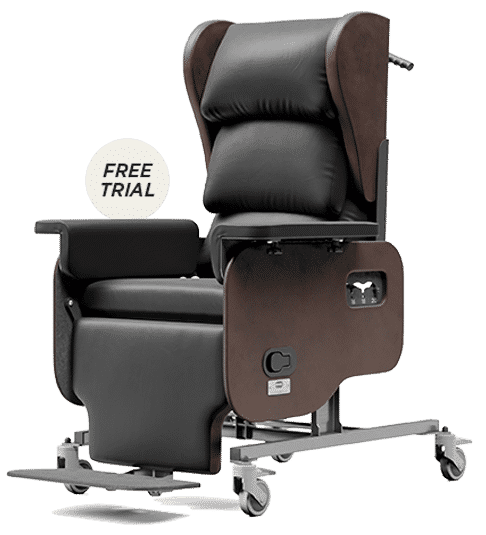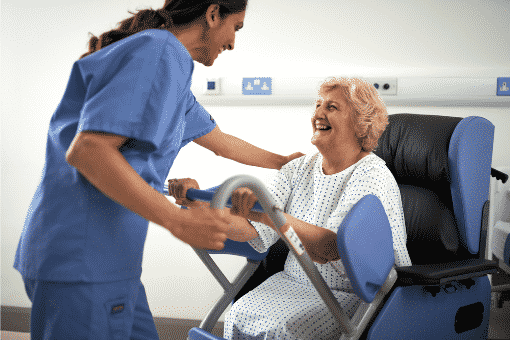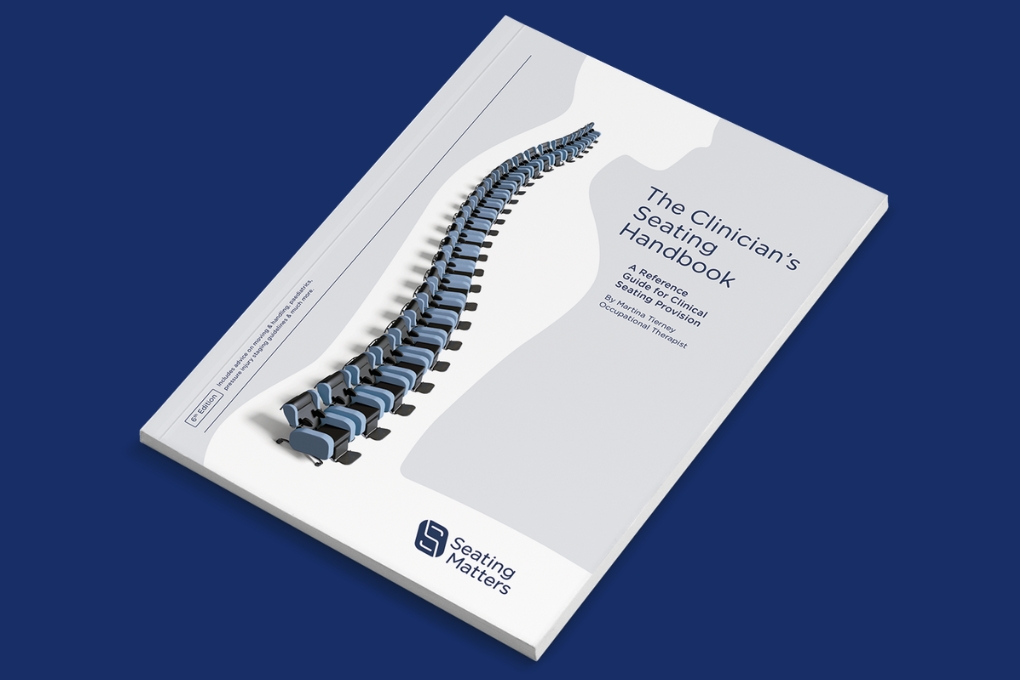Kyphosis and sliding in chair – Ben’s Story
Case Study
Ben, an 87-year-old male, had suffered a stroke (CVA) and osteoarthritis. He had a history of pressure injuries and spent up to 14 hours per day in his chair and used a patient lift for all transfers.*
Seating Issues: Kyphosis, Sliding, Inadequate Support, Skin Redness
Ben had suffered multiple problems in his old chair, most noticeably, he had little to no head support and a fixed kyphotic posture, resulting in it being difficult for him to lift his head or extend his neck.
Another problematic issue for Ben was that his field of vision was restricted due to the curvature of the neck and upper spine. He was often facing downward. The position of his head and neck caused issues breathing and eating, making his risk of choking & aspiration high.
Ben would slide from his chair at regular intervals throughout the day, causing him to develop red areas on his sacrum. In doing so, this would place an increased need for his caregivers to constantly reposition him.
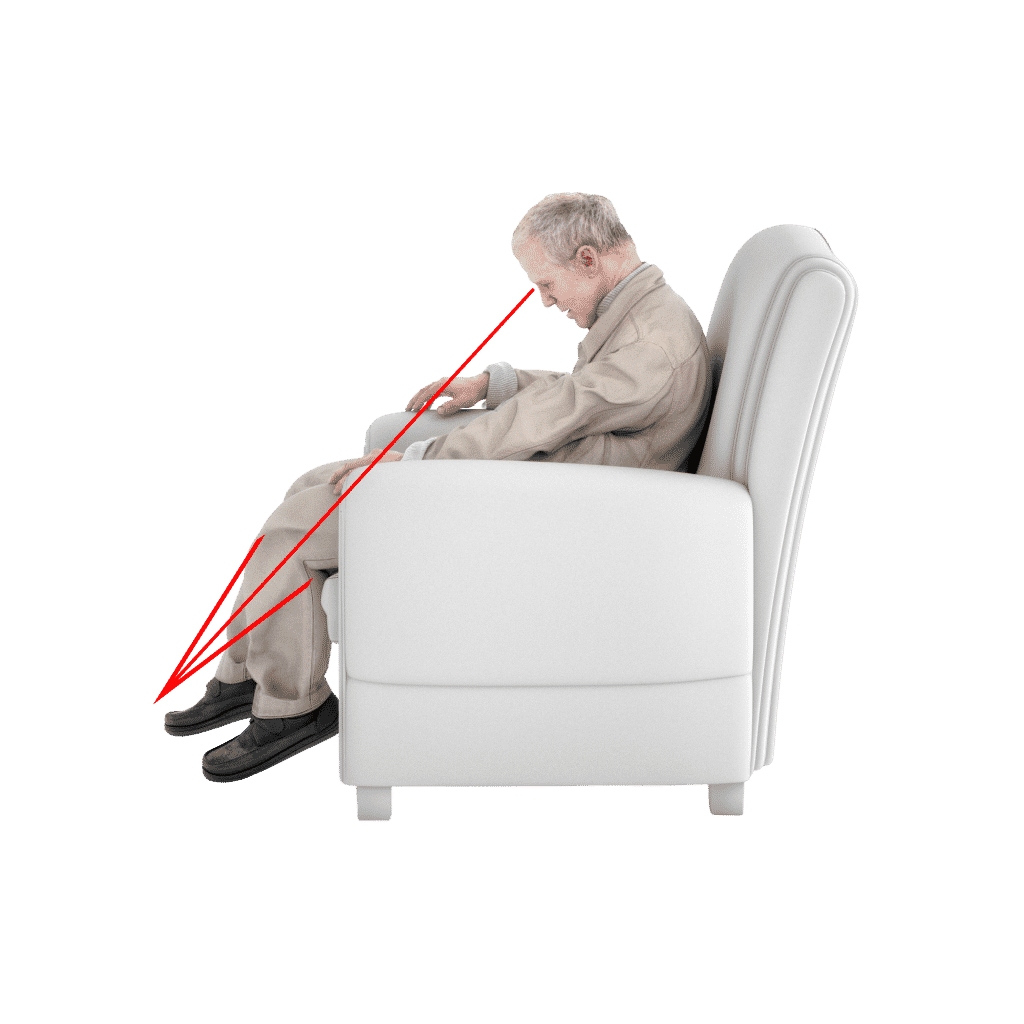
Other significant postural issues included a pelvic obliquity, imbalanced weight distribution, pelvic rotation to the right, as well as a leg length discrepancy. These issues added were compounded due to the issues in his spine.
Intervention: Fully Supportive Tilt in Space Chair
After being assessed, it was recommended that Ben be placed in a Phoenix chair to improve his postural alignment, as well as possibly helping prevent further kyphotic deterioration.
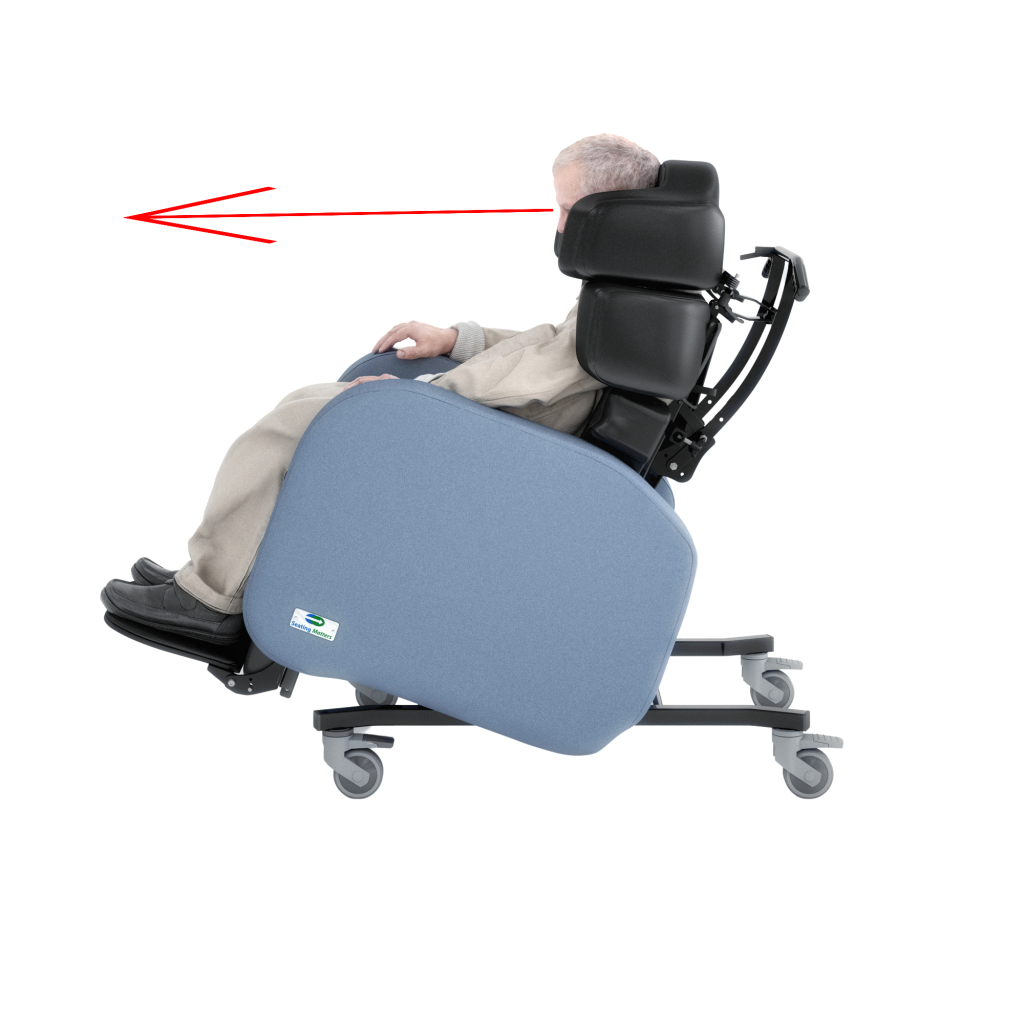
Upon being seated in the chair, the adjustable laterals, along with the head and shoulder supports, proved helpful in supporting Ben’s head and spine. The seating surface was adjusted to suit Ben’s physical dimensions, eliminating any pelvic obliquity and rotation. Tilt in space also worked in Ben’s favour, placing his head and neck into a neutral position over his spine. This lead to improvement with his visual field, and placed him in a much safer position for drinking, feeding and breathing.
Functionally, Ben’s chair could now be moved throughout the home, allowing him to safely spend time in different environments, without compromising posture by transferring him into an unsuitable wheelchair. In addition, Ben did not fatigue as easily in unfamiliar environments and he could participate in activities for longer periods of time without becoming tired and strained.
The Seating Matters Phoenix
Ben told caregivers that he is now more comfortable in his new chair and he is extremely pleased to be able to better interact with others in the room.
The Phoenix chair can accommodate various spinal presentations that can be beneficial for patients that have limited upper body control and tend to slide down in their chairs. A chair that can adequately support their full back and prevent sliding and unnecessary repositioning should be considered.
*Note – the purpose of this blog is to give an overview of the product with some tips to consider on its use. This is not intended to be a substitute for professional or medical advice, diagnosis, prescription or treatment and does not constitute medical or other professional advice. For advice with your personal health or that of someone in your care, consult your doctor or appropriate medical professional.
As used by








Kyphosis Chairs
Seating Matters is the only store that you need to visit when looking for a kyphosis chair online. We have a large range of seating that is suitable for those suffering from this condition and that will make your patients daily lives much easier to cope with. The best kyphosis chair is one that will take into consideration each part of your spine from the very base of the pelvis all the way right up into your head. Below, you can find out more about the seats we sell and the best seating for kyphosis.
Get The Best Kyphosis Chair From Seating Matters
At Seating Matters, we will have the perfect kyphosis chair for your patients. There are many different variations to choose from and if you are unsure of which will be best, please do get in touch with our helpful staff who will be able to advise you on what will be the most suitable chair.
If you look at someone with kyphosis, they can appear hunched over. This is because this is a spinal deformity that causes a curve in the upper half of your back. There are many things that can cause this and it can affect people from socialising if their head is leaning over. It can cause a lot of different problems such as numbness, nerve issues, back pain, problem breathing and more.
Here is what to look for in the best chair for this condition:
- Pelvic Positioning – The pelvis is the bottom of the spine and it is vital that it is well-positioned. When you suffer from this condition, you can be more tempted to slouch down in your seat, however, it is best for those with kyphosis to have their hips placed on the back of the chair for support and to help alleviate any lower back pressure.
- Head Positioning – Head support is a must for those who have severe kyphosis. Leaning forward causes the head to lean forward too and it can become difficult to support. Chairs with lateral support and backrest are a great option as they can provide both comfort and support around the head.
- Tilting – Tilting chairs are best for those with kyphosis as this allows you to lean back and take pressure away from your spine. Plus, you can maintain your hip angle which keeps you in the same position.
Get Your Free Clinicians Seating Handbook Today
Don’t miss out on getting your free clinician’s seating handbook from Seating Matters today. This handbook is written by Martina Tierney who is an expert in this field and helps to design chairs that are perfect for those suffering from diseases like kyphosis, Huntington’s and dementia. In this handy guide, you will find a range of information from practical tips on performing seating assessments to new staging guidelines for pressure injuries. Request this from our team today and it will be posted to your address free of charge.
Seating Matters provides clinical healthcare seating chairs for Disabled & Elderly people in Australia. We sell bariatric chairs, orthopedic chairs, cerebral palsy chairs, occupational therapy chairs, parkinsons disease chairs, huntington’s disease chairs, tilt space chairs, fall prevention chairs, motor neuron chairs, multiple sclerosis chairs, brain injury chairs, Paediatric chairs & other seating range in Australia. Browse our website for more information or contact us for more details.


